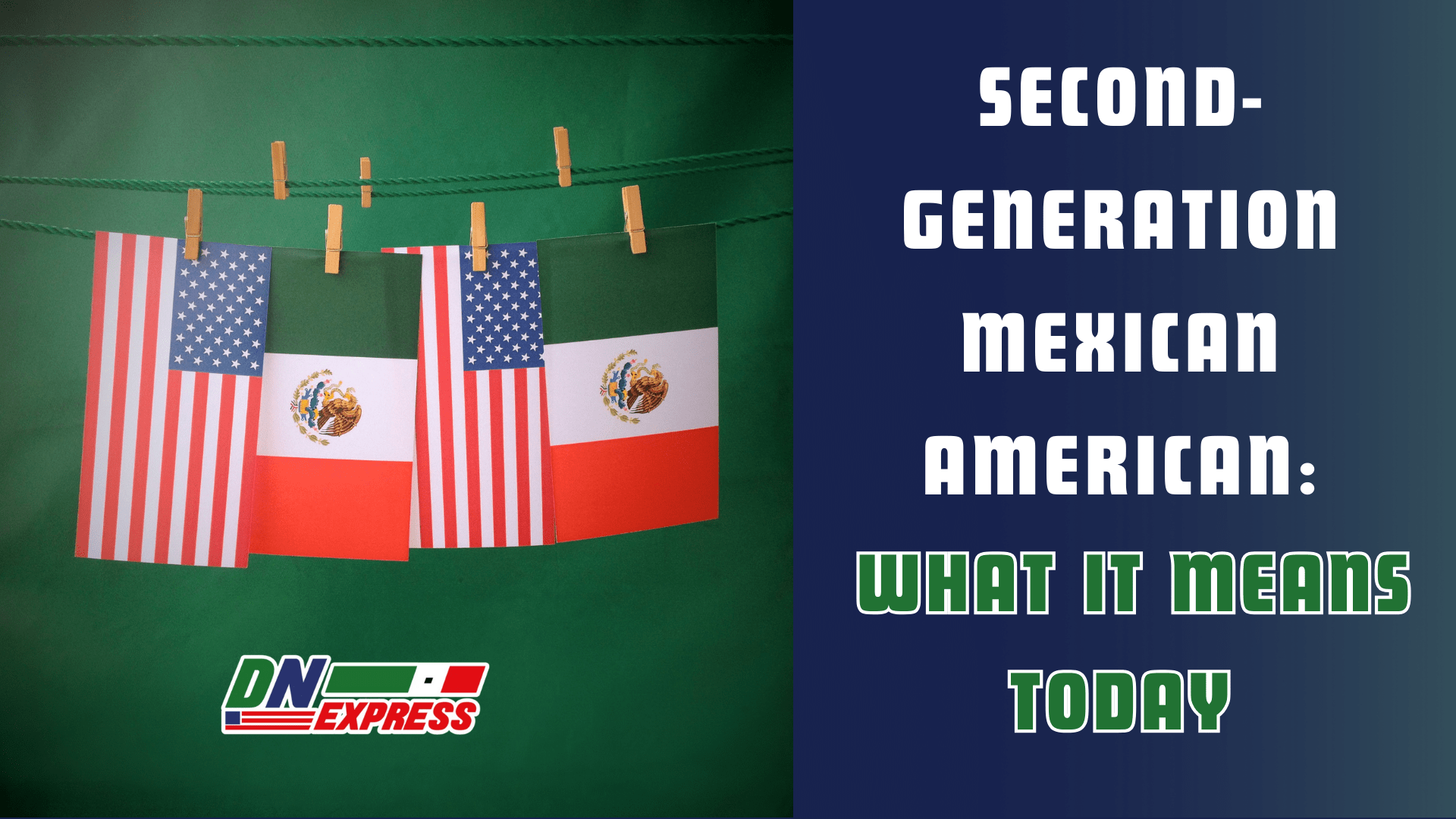Second-generation Mexican American = a U.S.-born person with at least one Mexican-born parent. Different from 1.5-gen (born in Mexico, moved to U.S. young) and 3rd-gen (U.S.-born parents, Mexican-born grandparents).
Family origins matter, not language, accent, or paperwork.
Key Points:
- If at least one parent is Mexican, you likely qualify for Mexican citizenship by descent. Adults can claim it later by proving lineage.
- Prefer to avoid the consulate? A remote, attorney-run process exists; many cases are completed without in-person visits.
- Start with a free case review, then send documents securely for processing.
Talk to Doble Nacionalidad Express, licensed legal team, remote handling, clear timelines, and help even when records are missing or a parent is unavailable. Free Case Review.
Want the full breakdown, definitions, identity nuances, eligibility paths, and step-by-step instructions? Keep reading.
Identity, Language & Belonging
Many readers land here with identity questions, “pocho/yo no sabo” anxiety, or confusion about “Chicano.”
Here's the truth: your place in the Mexican-American story comes from your family origins and lived culture, not an accent test or where you spent childhood summers.
What makes someone Mexican American?
Being Mexican American blends heritage (a Mexican parent/grandparent) with how you live it. Food, holidays, community spaces, language at home, and the values you pass on.
Many people tell us dual citizenship helped them feel “officially” recognized on both sides of the border. Not emotionally but legally.
Community labels like “Chicano” or “pocho” carry history. We encourage reclaiming, not gatekeeping, them because identity is broader than fluency and more fluid than a single label.
Academic institutions like Stanford's Chicano and Latino cultural center support this inclusive approach to cultural identity.
Keep Spanish alive
Worried your kids will lose Spanish? Totally normal and fixable.
Nationality by descent concerns lineage and documents, not language. Take the pressure off while building daily habits that work.
Practical, low-stress habits we see work for 2nd-gen families:
- 20-minute read-aloud in Spanish before bed (rotate comics, folk tales, and short news).
- Spanish-only hour at dinner or on Sunday mornings. Small, consistent blocks beat marathon days.
- Community spaces: folklórico, fútbol, parish groups, or cultural centers where Spanish is used naturally.
- Professional register: add a weekly class for older kids to learn formal vocabulary used at work/school.
- Cross-border ties: plan heritage trips or virtual calls with relatives in Mexico to give language a purpose.
- Home environment: label rooms/objects, stream music/podcasts, and keep Spanish books visible.
Families tell us dual citizenship itself keeps language alive because it opens reasons to use Spanish. Visiting grandparents, celebrating holidays in Mexico, and enrolling kids in short programs there.
Language is key to passing culture across generations.
What generation is considered Chicano?
“Chicano” isn't a legal generation or a box civil registries use. It's a cultural-political identity that spans multiple generations.
If you're sorting legal categories for nationality, use 1st / 1.5 / 2nd / 3rd-gen definitions. Save “Chicano” for how people self-identify and organize culturally.
If you're feeling “not Mexican enough” because of Spanish, many share this feeling.
We hear this in consults every week and still help clients formalize what they've always felt: belonging.
Generations 101: Fast, Clear Definitions
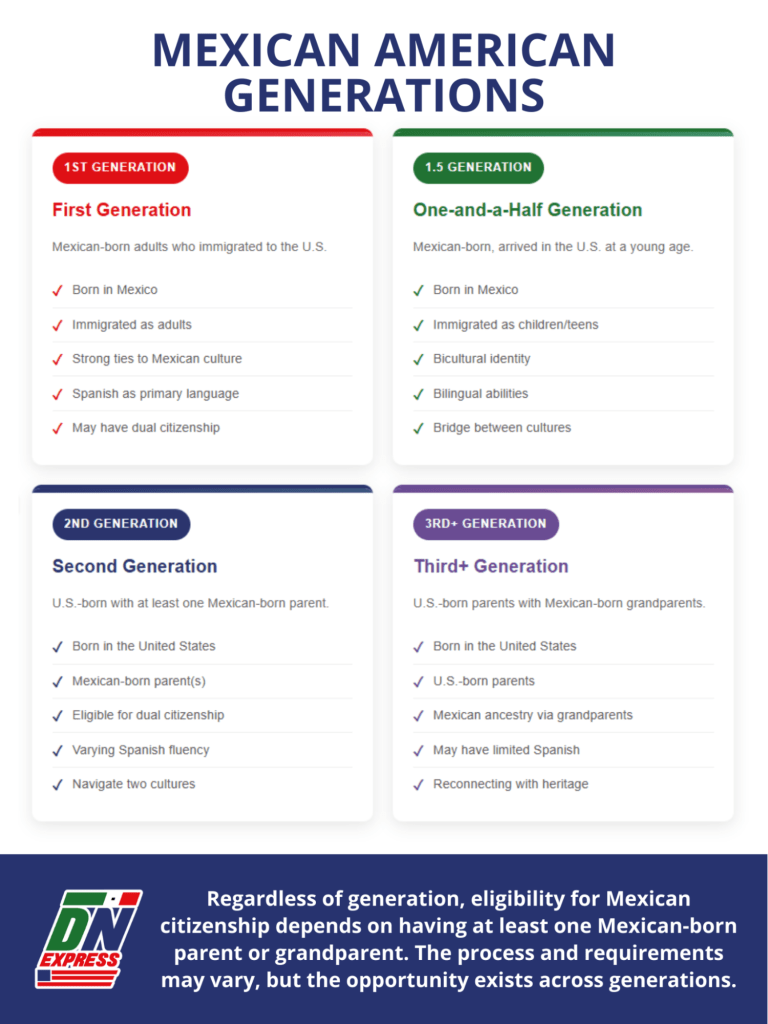
Ground rules: in demographics, “generation” concerns where you and your parents were born, not language or culture.
Demographic data on Mexican Americans confirms these standard definitions used across research and legal processes.
What is a 2nd-generation Mexican American?
A U.S.-born person with at least one parent born in Mexico.
What is a 1st vs. 1.5 vs. 2nd vs. 3rd generation?
- 1st generation: Mexican-born adult who immigrated to the U.S.
- 1.5 generation: Mexican-born, arrived in the U.S. at a young age.
- 2nd generation: U.S.-born, with Mexican-born parent(s).
- 3rd generation: U.S.-born parents, with Mexican-born grandparent(s).
Am I 2nd-gen immigrant?
If you were born in the U.S. and have a Mexican-born parent, you're commonly referred to as second-generation in demographic terms.
What is a 3rd-generation American/Mexican American?
U.S.-born with both parents U.S.-born, and Mexican ancestry through grandparents.
Can 2nd-Gen Get Dual Citizenship?
Core rule in plain English
If you have at least one Mexican parent, you likely have a right to Mexican nationality under Mexican nationality law. You can formalize it as an adult by proving lineage, even if you were never registered in Mexico as a child.
Real-world blockers & how to solve them
- Missing parent's Mexican birth certificate → Have a legal team search and retrieve the record in Mexico.
- Name/date mismatches across U.S./MX docs → Do vital-record corrections and document translation services (and, when required, apostilles) before filing.
- Deceased or estranged parent → You can usually proceed without their presence or permission; cases succeed with records alone.
- Inconsistent consulate criteria → Use an attorney-run, remote process to avoid in-person hurdles; many clients complete nationality without visiting the consulate. See common questions about this process.

Related reader questions
- “Can 2nd-gen Mexican American get dual citizenship?” Yes, typically via your Mexican-born parent (by descent). Start with a Mexican citizenship application review.
- “Who is the second generation?” U.S.-born with at least one Mexican-born parent.
- “What is considered the second-generation American?” Same definition across groups (U.S.-born + foreign-born parent).
Tip: You don't need to speak Spanish or bring a parent to appointments to claim what's already yours by birthright. Lineage + correct documents is what wins these cases.
Practical Upside: Why Dual Citizenship Matters
According to U.S. Embassy information on dual nationality, both countries recognize dual citizenship without restriction.
Mobility & security
- Live/work/study in Mexico with the rights of a national. Opening education, career, retirement, and social-security benefits that visitors don't get.
- Smoother travel & long stays: having Mexican nationality removes the need for temporary visas inside Mexico and simplifies repeated cross-border movement for work or family life.
Property ownership and business formation advantages
- Own property in Mexico and pass it to your children more easily. Clients explicitly report gaining the ability to “buy and save property in Mexico” after formalizing nationality.
- Operate and finance businesses in both markets, leveraging U.S. and Mexican banking/loan systems and USMCA/T-MEC trade frameworks for cross-border growth.
Family & legacy
- Register your children and keep records consistent so future applications are easy (birth, marriage, tax ID/RFC). Services include vital-record searches and registration of foreign marriages in Mexico.
- Transmit nationality across generations; many families sequence claims (e.g., parent first, then adult child) to unlock eligibility for everyone.
Everyday wins
- Cost-of-living and lifestyle flexibility, access to healthcare/education, and cross-border careers. Citizenship widens your options on both sides of the border.
- Practical admin help (RFC, document retrieval, corrections) that keeps your binational life running smoothly.
Next steps:
- Check our services to see record searches, RFC, and family-record updates we handle.
- Send Documents for a free digital review; start from home.
- If you prefer to mail originals, see Mailing Instructions with verified addresses and intake flow.
Family Scenarios & Edge Cases
My parent never registered me. Am I too late?
No. Adults can still claim by descent by proving your parent's Mexican birth and fixing any cross-record issues (names, dates). Typical first moves: retrieve the parent's Mexican birth certificate and correct mismatches before filing.
What we do in these cases: locate missing records in Mexico (all 32 states), digitize them if needed, and align documents so they pass review.
Grandparent path & 3rd-gen readers
Often it's a two-step sequence: your parent first reclaims/formalizes their Mexican nationality, then you register through them.
Expect extra document work (marriage/foreign events registered in Mexico) to keep the lineage clean.
Consulate said I must bring my parent
This is a frequent barrier and frequently unnecessary. Cases can be completed without your parent's presence using lawful alternatives and record evidence, and many are handled remotely (no in-person meeting).
If a parent is deceased or estranged, you can still proceed by proving lineage. Teams can search for the record in Mexico or work with relatives for info.
My Spanish is weak. Will that be a problem?
There's no language test for nationality by descent. Eligibility turns on lineage + documents, not fluency.
We regularly help clients who don't speak Spanish. Resources and bilingual support are available if you want to improve.
I was denied once, can I try again?
Yes. Most denials trace to missing or mismatched records.
A second look typically focuses on: (1) retrieving the right certificates, (2) correcting names/dates, and (3) sequencing filings correctly (e.g., register foreign marriage/death first).
Tip: If your DIY attempt stalled at the consulate, a remote, attorney-run approach plus targeted record corrections often unlocks the same case without repeat trips.
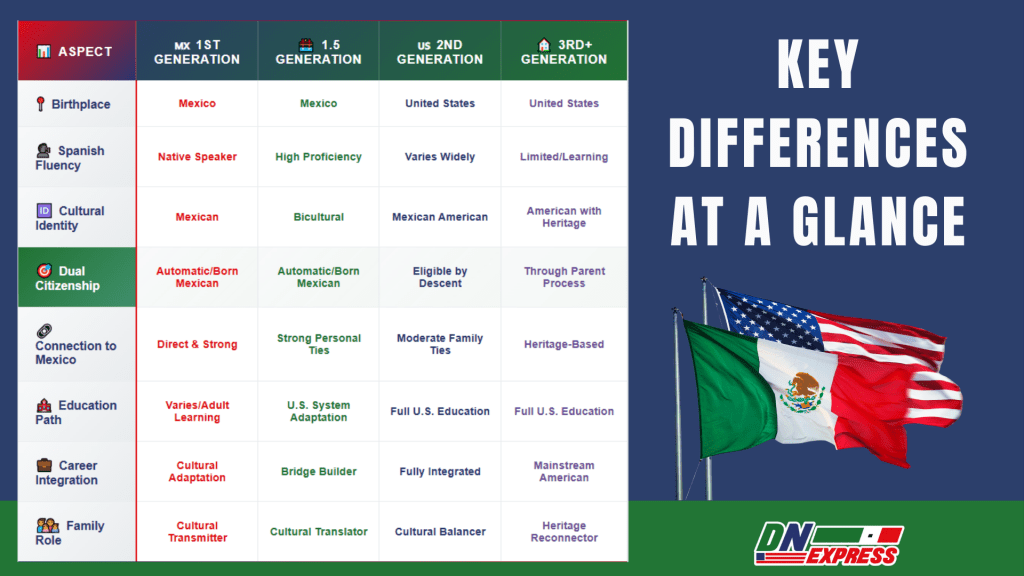
Overcoming Bureaucratic Hurdles
Paperwork isn't paperwork. It's identity, family, and nerves. Here's how we tackle the most frequent pain points with simple, proven fixes.
Language stigma / “pocho” anxiety → reassurance + resources
You don't need fluent Spanish to claim nationality by descent. Eligibility hinges on lineage + documents, not language. Our team routinely helps U.S.-born clients who don't speak Spanish formalize their status.
If you want to rebuild Spanish at home, dual citizenship itself creates reasons to use the language (family travel, school options, cultural events). Many families use dual nationality to reinforce Spanish across generations.
No one I know has dual citizenship, is it realistic? → yes; here's how claims work
If at least one parent is Mexican, you have a path to citizenship by birth according to Mexican government's official dual nationality information.
We confirm eligibility, retrieve missing records, and submit legally. Clients describe finishing without consulate waits, some report results in weeks.
My kids will lose Spanish → practical habits to sustain bilingualism
Citizenship first, fluency second. Reduce the pressure while building routines (reading, Spanish-only hours, community activities). Families often find that legal recognition strengthens cultural and language continuity because it unlocks travel, school, and family programs in Mexico.
Consulates are inconsistent; I'm stuck → remote, attorney-run alternative
Rules and practices can vary by consulate. We provide a remote, attorney-run process that removes the in-person bottleneck.
You don't need to visit the consulate or travel to Mexico. Same legal criteria, handled by licensed professionals.
Need a plan tailored to your case? See Services, then Send Documents for a free review; check FAQ for what to gather and timing expectations.
DIY vs. Hiring Doble Nacionalidad Express
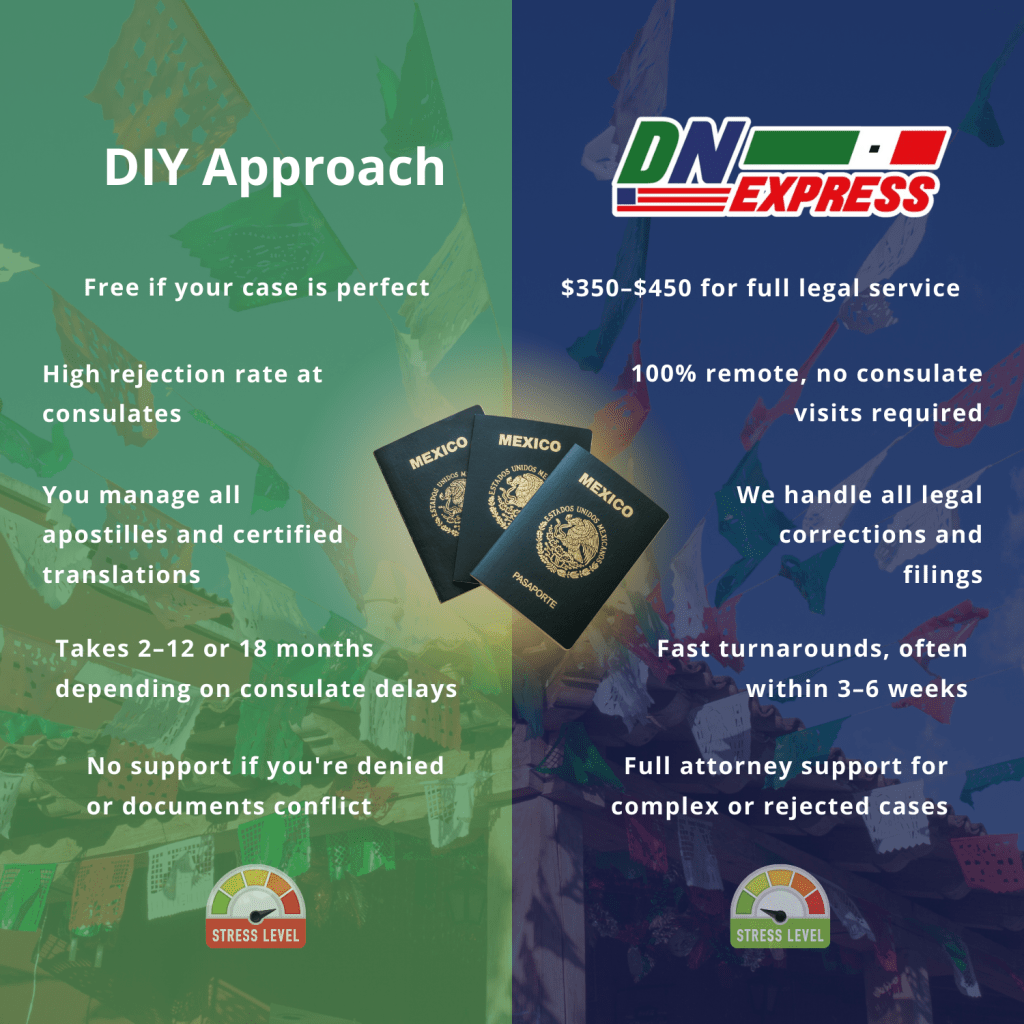
Why DNExpress
- Licensed Mexican attorneys, in-house. About our legal team: You're not handed off to a form-filler; your case is reviewed by Mexican lawyers, not outsourced.
- U.S. + Mexico footprint. Offices on both sides of the border and on-the-ground agents in all 32 states to search archives and resolve local issues.
- Consulate-free pathway. We complete nationality without requiring you to visit a consulate. Same law, fewer hoops.
- Document search & corrections across Mexico. We locate missing birth records, digitize them, and fix mismatches before filing.
- Strong phone/WhatsApp support. A large team answers calls and WhatsApp; free case reviews set expectations up front.
- Thousands helped. 7,000 this year alone. Pricing information shows transparent pricing, clear scope, and a person to guide you.
Downsides of DIY
- Long consulate waits & surprise denials. People report scarce appointments and “on-the-spot” rejections over tiny document issues.
- Travel and time costs to chase records in Mexico. Without a legal network, you may need in-person searches; our agents handle this locally.
- Fixing documents out of order = delays. Many DIY cases stall until vital records are corrected/registered (e.g., marriage, deaths) and names/dates aligned.
- Inconsistent consulate rules. Different cities, different answers. Standardizing criteria through an attorney-run process avoids this maze.
What it feels like to work with us

- Fast, lawful outcomes even after prior rejections. Clients describe finishing in 3–6 weeks, with respectful guidance the whole way.
- We're candid about communications. Most reviews praise responsiveness; a few note slower replies at times. We set expectations and keep multiple channels open (phone, WhatsApp, office visits).
- Human, bilingual support. From first call to final document, you're heard, helped, and kept in the loop.
Next step: Book a Free Case Review and, if you're ready, Send Documents for a no-pressure check before we file.
Step-by-Step: Start Your Claim Today
1) Free Case Review (5–15 min call)
Speak with our team and we'll confirm if you qualify, map your path, and answer questions by phone, WhatsApp, or contact our team site form. The review is free and typically takes 5–15 minutes.
2) Gather or locate documents
Have your U.S. birth certificate and your parent's Mexican birth record. If that record is missing, our team can search, digitize, or purchase the certificate anywhere in Mexico and help align family records (e.g., foreign marriages) so everything matches.
3) We file everything—no consulate visit
We run the filing attorney-to-authority, keep you updated, and handle logistics via secure Send Documents upload or Mailing Instructions if you prefer to mail originals. Many clients complete nationality without visiting a consulate.
4) Next steps after approval
We guide you to your Mexican passport/ID and can assist with booking or accompanying for related appointments when useful. Clients consistently note helpful, hands-on support through the finish line.
You shouldn't have to decode consulate rules or fly to Mexico to fix a typo. Our licensed Mexican attorneys run your case end-to-end, without a consulate visit, retrieving records and correcting documents so your right to nationality becomes official. Fast, clear, lawful. Free Case Review.
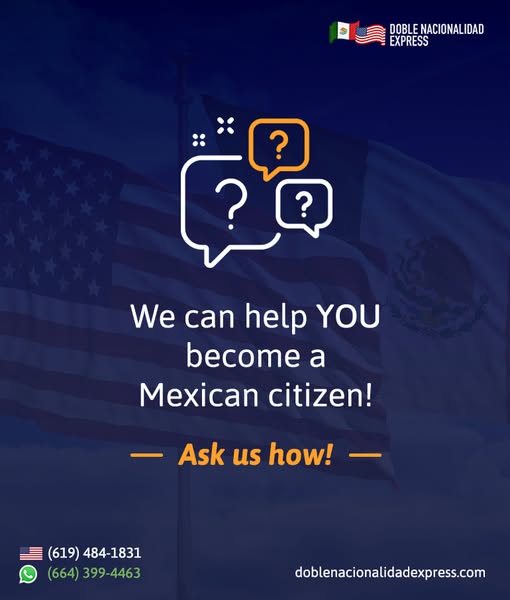
FAQ
What is the 2nd generation?
U.S.-born with at least one Mexican-born parent.
First vs. second vs. third generation?
1st: Mexican-born adult who immigrated. 1.5: Mexican-born, arrived young to the U.S. 2nd: U.S.-born, Mexican-born parent(s). 3rd: U.S.-born parents, Mexican-born grandparent(s).
Can 2nd-gen get dual citizenship?
Yes, by descent. If at least one parent is Mexican, you can claim nationality; adults can formalize later by proving lineage and aligning documents.
What is a 3rd-gen Mexican American?
U.S.-born with both parents U.S.-born, and Mexican ancestry via grandparents.
What generation is “Chicano”?
A cultural-political identity used across generations, not a legal generation category. See the definitions above for legal/administrative use.

